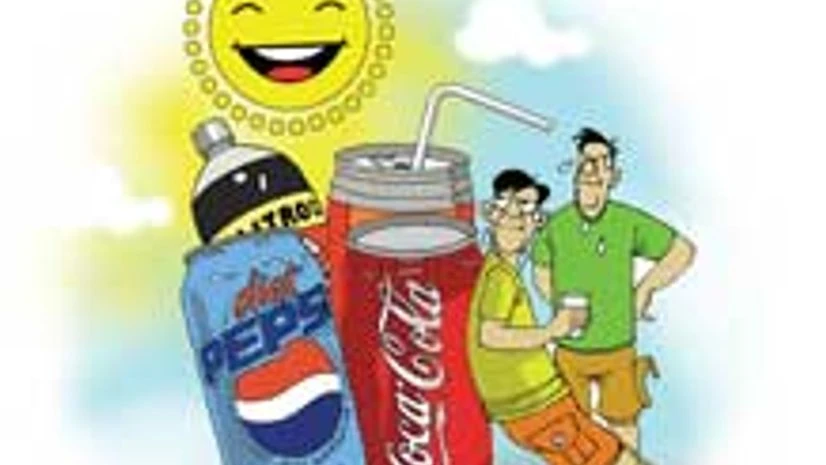Soft drink manufacturers such as Coca-Cola and PepsiCo have always been vulnerable to any increase in price. That is because people tend to cut consumption whenever there is a price revision and, as a result, sales volumes take a hit.
Budget 2014-15 has increased the excise duty on flavoured water, as well as aerated water with sugar content, from 12 per cent to 17 per cent - a 40 per cent rise, the highest ever in the past decade. As a result, the sector is expected to take a hit of over Rs 600 crore on an annualised basis.
Soft drink manufacturers are likely to pass on the additional excise duty burden to consumers and consumers can expect a price increase of 5-10 per cent.
More From This Section
| FIZZING WITH RAGE |
|
With this, larger packs of 500 ml, 1 litre, 1.5 litres and 1.75 litres are likely to be costlier by two-four per cent.
However, smaller packs of 200 ml and 300 ml might be spared the rod primarily because it would lead to a coinage problem at the retail level (if a Rs 10 bottle was priced at Rs 11, retailers will have trouble because of shortage in coins).
If sales go down because of the price increase, the advantage of a harsh summer which would have otherwise helped the soft drink makers clock better sales, might get neutralised.
According to the senior executive with one of the soft drink companies, the sector grew six per cent in volumes in the first quarter of this calendar year. The volume numbers have not come out yet but when they come, they would be in double digits thanks to the intense summer, he said.
Aerated water constitutes about 70 per cent of the volumes of soft drink makers. It also forms the bulk of their profits because for many, juice drinks and mineral water do not give healthy margins.
The sector is sensitive to a price rise and its impact on sales. This reflected in 2013 when the soft drinks sector grew by a mere four per cent, not only because of the general economic slowdown but also because two key manufacturers had to raise prices by 3-7 per cent owing to an increase in input costs. This time, however, the price increase could be much higher.

)
